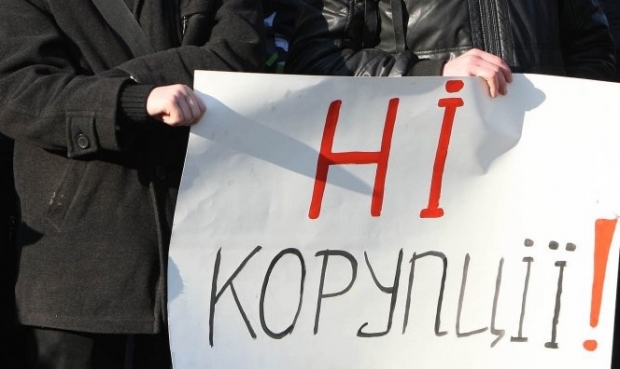
"The technocrats who entered the government to help implement Western-backed reforms are losing faith. [Infrastructure Minister] Pyvovarsky was one of several reform-minded ministers to resign this month after Minister of Economy Aivaras Abromavicius said that a close friend and political ally of Poroshenko had tried to force him to hire a deputy to manage Naftogaz, the state-owned oil giant, and other potentially lucrative companies," reporter Andrew Roth wrote in the article titled "The corruption that fueled Ukraine's 2014 revolution won't go away," published on Sunday.
Abromavicius, in an acerbic resignation letter, identified the ally as Ihor Kononenko. Journalists already had dubbed him the party's "gray cardinal," and Ukraine's leadership appeared shaken by the scandal. Seeing a "window of opportunity," Pyvovarsky returned to the government in a last-ditch effort to carry out his agenda, saying that he either would see parliament pass key reforms or he would quit for good.
The result? More of the same.
"I'm not holding onto this table. I don't want to be minister," Pyvovarsky said. "It's a matter of a couple of days. I'm not going to wait for six months. Or one month. I don't trust them. I do not trust them."
Ukraine's parliament is unraveling by the day, and the government is more concerned about survival than passing sweeping reform. Last week, Yatsenyuk's government narrowly survived a vote of no-confidence, saved by lawmakers in Poroshenko's party and those loyal to several oligarchs who mysteriously disappeared from parliament during the vote. Later, two of four political parties left the ruling coalition, setting up the likely return of the populist Radical Party as a junior partner.
Early elections are likely. Average Ukrainians are fed up. There have been some successes in the reform process, such as a new police force and decentralization, but the economy contracted 10.5% and inflation rose more than 40% in 2015. Political parties are thinking about positioning themselves for elections, said Balazs Jarabik, an analyst at the Carnegie Center, "not sound policy and reform-making in the parliament."
Western governments want Ukraine to push forward with reforms but have rejected radical change in order to unblock Ukraine's parliament, warning that new elections will plunge the country deeper into political crisis.
The West's influence on Ukraine's government cannot be overstated. Ukraine needs Western financial support, including the remainder of a $17.5 billion International Monetary Fund bailout, to prop up its economy. IMF head Christine Lagarde threatened last week to cut off aid "without a substantial new effort to invigorate governance reforms and fight corruption."
On the other hand, dismissing the government without a replacement also would risk the IMF bailout and be like "jumping out of a plane without a parachute," said one Western diplomat, who spoke on the condition of anonymity to discuss the situation candidly.
Poroshenko's critics say he has played a double game: pandering to angry voters by publicly calling for Yatsenyuk to step down, but privately scuttling the no-confidence vote to prevent new elections or the loss of Western aid. The diplomat, citing private channels of communication, said that throughout the day, he had "clear indications that Poroshenko was not going to allow" the government to fall.
Poroshenko's main concession on reform last week was firing Prosecutor General Viktor Shokin, another ally who has been accused of blocking reforms and prosecutions against corrupt businessmen. Perhaps the most troubled of Ukraine's institutions, the general prosecutor's office is trusted by less than 10% of the population.
"The decision is correct but it's late," said Vitaliy Kasko, a respected deputy general prosecutor who also resigned recently, citing personal interference by Shokin. He has said he was pressured and refused to accept instructions from Kononenko, the friend of the president. In his resignation, Kasko wrote that the general prosecutor's office was a "dead institution, the independence of which nobody believes in." He said that despite Shokin's dismissal, he had no plans to return to work there.
Abromavicius, the minister of economy whose resignation triggered the crisis, said he welcomed the new scrutiny that the scandal had brought, including a code of ethics passed through the government cabinet.
"It is not too late to say goodbye to friends in politics," he said, adding that Poroshenko and Yatsenyuk had an opportunity to return trust to the government. "If the government collapses, it is not because of us. It is because of the things that were being done in the wrong way."

